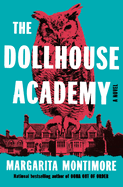Kim-from-L.A., Literary & Media Services, a company that specializes in book publicity and media training, will be celebrating its 40th anniversary this month. Kim Dower, its founder, will also be publishing her sixth collection of poetry, What She Wants: Poems on Obsession, Desire, Despair, Euphoria (Red Hen Press, dist. by PGW, January 14, 2025). We sat down with Kim to hear some career highlights, some gossip, what has kept her going all these years, and how she's merged her two careers as poet and publicist.
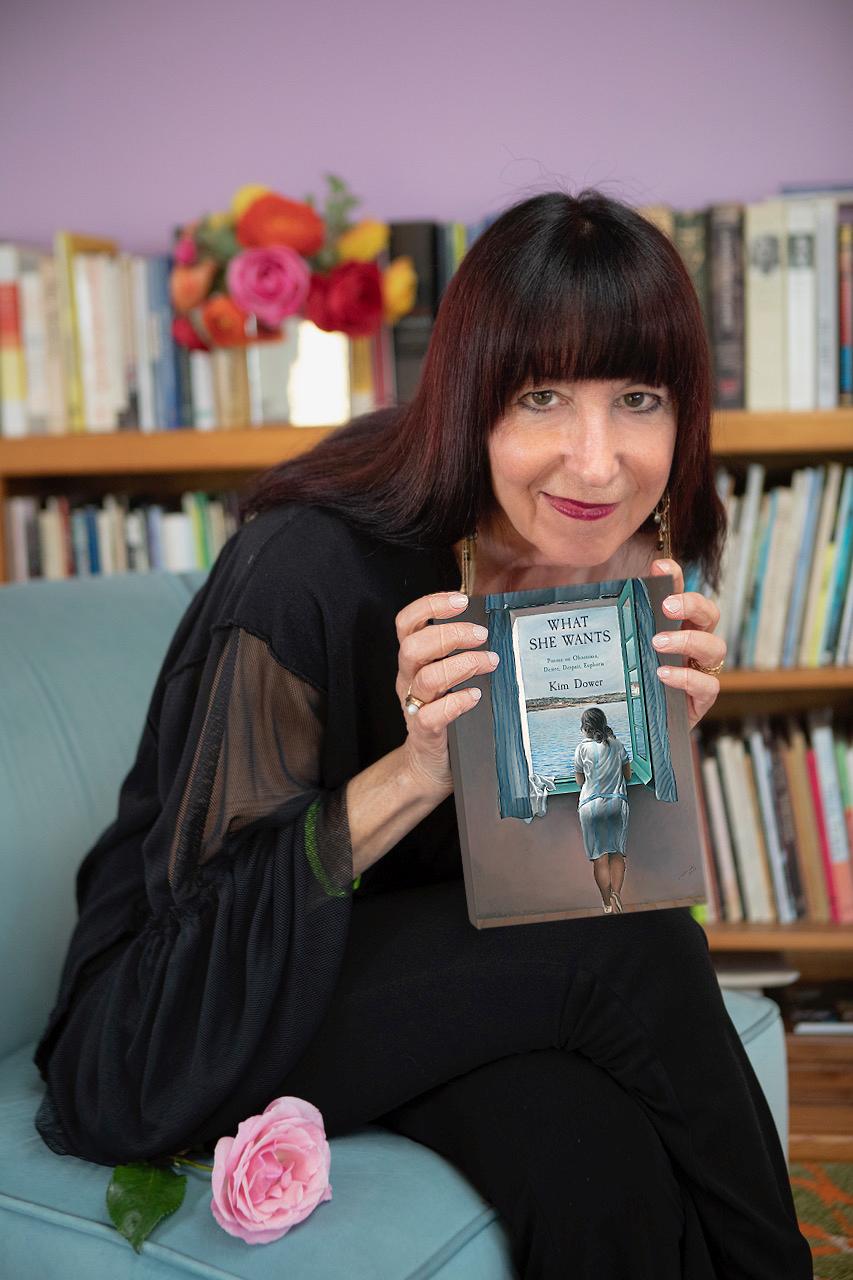 Shelf Awareness: When you started your company in 1985, why did you choose to call it Kim-from-L.A.?
Shelf Awareness: When you started your company in 1985, why did you choose to call it Kim-from-L.A.?
Kim: Prior to starting Kim-from-L.A., I was a publicist at Jeremy P. Tarcher, Inc., the innovative, visionary publisher (Drawing on the Right Side of the Brain) on Sunset Blvd. in Los Angeles. He did alternative life-style books way before their time like Homeopathic Medicine at Home. No one had a clue what the word "homeopathic" meant--there was no Whole Foods back then! Also, this was before e-mail, and to make my job even more challenging, my name was Kim Freilich, and I would get on the phone to pitch and say, "Hi, this is Kim Freilich from Jeremy P. Tarcher, Inc., in Los Angeles," and I'd hear a dial tone. So I shortened it to "Hi, it's Kim-from-L.A.," and that did the trick. My first lesson in "branding." When I opened my own shop, calling it Kim-from-L.A. was perfect.
SA: Who was your first client?
Kim: Dr. Timothy (Tune in, Turn On, Drop Out) Leary. I had done the publicity for his Tarcher autobiography, Flashbacks, and when I started Kim-from-L.A., Leary was coming out with one of the first interactive, desktop video games from Electronic Arts, called "Mind Matters--part tool, part game, and part philosopher on a disk." He asked them to hire me to create a media tour much like I'd done for his book. Besides being my first client, he was one of two clients I "lost" on the road. After a fancy celebratory dinner in New York City, he disappeared with Keith Haring, and I found him 24 hours later.
SA: You've been a part of book publishing for 40 years. How is the publicity landscape different now from when you started?
Kim: No parties! No platters of jumbo shrimp surrounded by ARCs and media escorts. When I started, authors were celebrated in a non-virtual way. There were television shows that would honor authors and writers: Phil Donahue, Oprah, Sally Jessie, Larry King, Charlie Rose! Getting an author on the Leeza Show could propel it onto the bestseller list. The publicity landscape for authors was thriving with opportunities and choices. At least two major newspapers were in every market. There were lengthy feature stories on writers and stand-alone book review sections! Live, local radio shows interviewed authors throughout the day. Journalists, producers, and reviewers would answer their phones and welcome a pitch! It was exciting to connect with a journalist, have a conversation about a book, get a producer interested by selling them the idea. I remember those days of sitting on the floor putting press kits together, mailing them with ARCs, waiting a week and following up. It was labor intensive and often tedious but satisfying because I could talk someone into doing a story, and you can't do that with a subject line in an e-mail.
What we've gained in speed--e-mailing a pitch to 100 journalists and producers in 20 minutes--we've lost in relationships. Rarely will a journalist or producer pick up the phone or even give you their phone number. I spend hours thinking of subject lines that'll grab right away, and if you're not promoting someone well-known, it's a crap-shoot if you'll ever hear back.
Because the challenges today are daunting, the excitement of scoring a great booking is even more intense. I love success! Also, each day more and more podcasts crop up, so there are even more options for us to explore--it just takes a lot of research to find the shows that people actually listen to. It's the wild west of publicity. We still have our solid outlets, but as they shrink and as more and more authors are published (many self-published), our possibilities for coverage shrinks. The concept of "thinking outside the box" isn't enough. We have to "think outside the universe!"
SA: How have you sustained this business for so long?
Kim: Pretty simple: There's a new set of players--books, authors, personalities, ideas--every 6-8 months. Every season brings new challenges, and whether it's a health book, thriller, literary novel, or memoir, it's new all over again. Just like starting a poem--it always feels like the first time--how will I accomplish this? How do I start? And just as every poem I write (hopefully) will be a surprise, every new client and book teaches me something new. We'll discover new contacts and shows. Something will come up in the news that's perfect for our client to address. These are the surprises, the things that often unfold as the months go by--we don't always know about them when we take on the project.
SA: You've been publishing award-winning poetry since 2010. How have you managed to sustain a lively, thriving business while writing your own books?
Kim: I have no idea.
Seriously, it took many years after studying and teaching creative writing at Emerson College and moving to Los Angeles to make room (again) for poetry. When I moved to L.A. in the late '70s, I left poetry behind and focused on making a living. Since I knew I somehow needed to be involved with books, becoming a book publicist was perfect. As I said to Jeremy Tarcher in my interview, Are you saying you'll pay me to talk to people on the phone about books?
As the years went on, Kim-from-L.A. grew, my son went off to college, and poetry came back. I was overcome by "Nightingale Fever," the great poet Thomas Lux told me. I found lines of poems I'd written over the years on scraps of paper everywhere--inside my desk drawers, pockets, notebooks. I started writing again every day, went to a poetry workshop on Saturday mornings for 10 years, attended poetry festivals, conferences. Kim-from-L.A. continued to thrive, not missing a beat, but poetry and writing forced its way back into my life. So many people in our business are also writers, and I'm proof there's time to write, develop your voice, and publish no matter what your "day job" is. For me, having Kim-from-L.A. in addition to writing is a comfort, takes the pressure off. My work as a publicist has always informed my writing and my career as a poet.
SA: How so? Are there similarities in the two "careers?"
Kim: Absolutely. For one thing, poetry, the most concise form of language, has taught me how to tighten up my pitches. Poets must say the most using the fewest words. People will stop reading a poem if the title and first couple of lines don't grab them. Same with an e-mail pitch. It's stressful knowing we have to sell it so fast in one line, but we do. Writing poetry has also helped me get to the heart of my client's books--what's their main message and how can they convey the most important points on a radio show or podcast? I love doing media training, and because I have to present at my own readings, I'm very aware of how I can help my clients achieve great presentations. I've been there. And I also know what it feels like when only three people show up to an event, when the books haven't arrived yet at the store, or what the expressions on the audience's faces look like if you go on too long!
SA: Most fun authors? Most un-fun authors? Best experiences, worst experiences?
Kim: Honestly, that would take up an entire book--one I will never write! I've probably worked with more than 500 authors, each with a story. In the '90s, when I did the West Coast publicity for Hyperion, I had some fun celebrity superstar experiences, many sitting in the back seat of a limo, such as when I'd drive around to interviews with George Carlin for his book Brain Droppings and he'd have the driver stop to so he could give homeless people money, and he'd recite bits from his old records for me. Holding onto Robert (The Kid Stays in the Picture) Evans up so he wouldn't roll off the back seat on our way to CNN--he liked to nap between interviews with his shoes off. I guess that doesn't sound like too much fun but it was! Munching on burgers and fries with the amazing columnist Liz Smith (Natural Blonde) because I bet her In & Out Burger was better than White Castle (I won). Booking a five-city West Coast tour for Burt Reynolds--top media and bookstores--only to have him disappear midstream. He flew home to Florida without telling me (or anyone), leaving people lined up at bookstores waiting for him. The ultimate publicity nightmare--but fun in the way publicity disasters can be.
Larry Flynt was certainly my flashiest, most world-famous, notorious client--for 15 years and three books. We had fun, playing poker in greenrooms all over the country to keep him entertained while he waited to go on shows, and the wild press conferences during the Clinton impeachment years from his penthouse office on Wilshire Blvd.
And I'm sure all the Los Angeles booksellers who attended the Candy Spelling luncheon in 2009 for her book Stories from Candyland at her palatial home (individual silver--or were they gold?--salt and pepper shakers in front of each place setting) will never forget touring her mansion with a special nod to her gorgeous gift-wrapping room.
The thrill (and I'm serious) of watching Paris Hilton (Confessions of an Heiress) take a nap on my office couch before taping The Tonight Show while Tinkerbell, her tiny dog, ate a burger (no bun) and fries from Johnny Rockets off of my hot pink carpet.
I can say my most un-fun moment was being called in the middle of the night by a client on book tour--who shall remain nameless--to complain about the sheets in the hotel. Itchy, she said. It was 3 a.m.
SA: You've been a witness to writers for many years, in addition to being one yourself. How has the job of being a published author changed over 40 years? Is it harder than it used to be?
KIM: Yes. Without doubt. The stories I've told about celebrity authors are quite different from stories about writers who are not famous. We have to hustle in a way many of us are uncomfortable hustling. It's not enough to "just" write a book. Even a great book. Now one has to promote it. Many writers are shy--uncomfortable tooting their own horn and even when we're there to do it for them, they still need to create all sorts of "platforms" the industry now insists upon: Facebook pages, Instagram posts, websites. Writing a book is only step one. The demands to self-promote are intense, often unpleasant and unfulfilling and yet we're pressured do what it takes to get ourselves out there.
SA: Can an author truly be her own publicist? How do you get in the headspace of being "the publicist" when you're working on your own books?
Kim: It's challenging. I did a lot of my own publicity for my first few collections, but I find it gets tougher and tougher. I push when someone is paying for my services. I'll do whatever I have to, whatever I can think of to get a client an interview. I'm a great advocate for other people. But it's tough for me to push my own books. Luckily Red Hen Press has a terrific publicity and marketing team who do great work. I also know what it takes to get coverage (especially for poetry), and I definitely know how "the sausage gets made," and unmade. I keep my poetry website up to date, I create attractive promotional material that I share with Red Hen, and I do some "behind-the-scenes" outreach. I love independent bookstores and there are so many great ones! I try to inform as many booksellers as I can about my books. I love going on book tour, reading poems, seeing good friends. I have great stores lined up for my new collection including Book Soup, Diesel, Book Passage, Village Well Books and Coffee, Vroman's, Warwick's, Book Passage, Powell's, Changing Hands, and I'll do stores in New York, Chicago and Madison, Wis., in late spring. I post a little bit on social media. But pitching myself for interviews and features makes me increasingly uncomfortable. Much better to have someone do it for you!
SA: If you could be only a publicist or a poet for the rest of your life, which would you choose?
Kim: I'll always be a poet.
SA: If being a poet and publicist are two different versions of yourself, which one is Dr. Jekyll and which one is Mr. Hyde?
Kim: Dr. Jekyll is definitely the publicist--calm, focused, unflappable and persistent--in the nicest way. Not saying Mr. Hyde is writing all the poems, but he's definitely the part of me who's allowed to become out of control.
SA: When you're meeting someone for the first time, do you introduce yourself as a poet or a publicist?
Kim: Great question. I'll get back to you.
SA: What's one thing you wish authors understood (or knew) about publicity?
Kim: How difficult it is and how much effort it takes to get any results. How one booking can take weeks to secure and dozens of e-mails and calls and a variation of pitches. How it's even challenging when you have a well-known author.
SA: Have you ever been star-struck by an author you've met or worked with?
Kim: Two authors--neither movie stars! When my son was two years old, I did the West Coast publicity for Addison-Wesley and they published the very wonderful (and famous) pediatrician Dr. T. Berry Brazelton. I worshiped him. My sister-in-law had sent me all of his books when I was pregnant, and I followed everything he said. When I found out I was going to meet him at sales conference, I was so nervous and totally star-stuck! We later became friends. He met my son. It was amazing.
And Erica Jong, whose poetry I adored since high school. I remember reading Fear of Flying in college and thinking how amazing it would be to meet her. And then when I was working for Tarcher before I started Kim-from-L.A., I did the publicity for the book Women Who Love Too Much by Robin Norwood, and I reached out to Erica for a blurb. No e-mail--snail mail and phone! I sent the ARC and wrote her that I thought Isadora Wing (her character from Fear of Flying) was a "woman who loved too much!" I'll never forget when she called me in 1984 to offer the blurb. When I heard her voice, I got the chills! That began our friendship, which continues today! Eventually I told her I was a poet, and for 20 years we shared poems back and forth on e-mail and even went on two poetry book tours together. I dedicated my upcoming collection, What She Wants, to her.
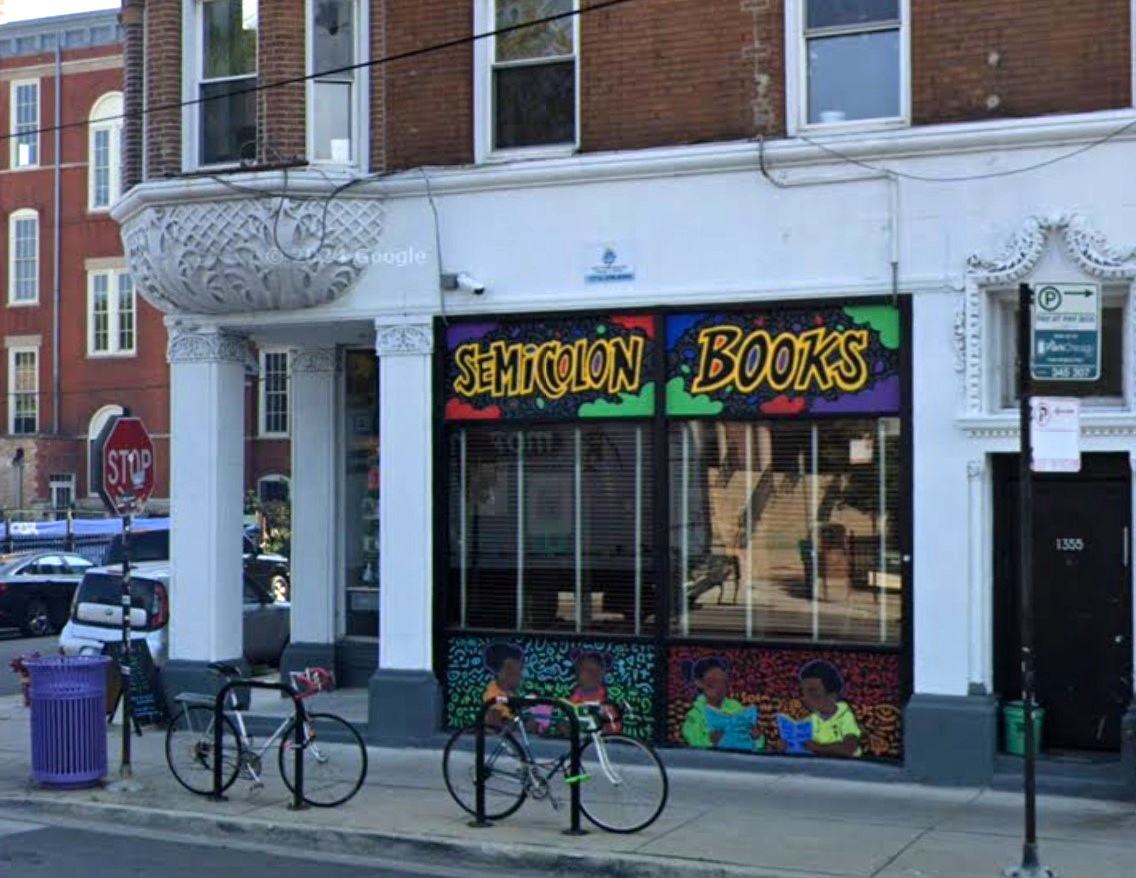





SHELFAWARENESS.1222.S1.BESTADSWEBINAR.gif)



SHELFAWARENESS.1222.T1.BESTADSWEBINAR.gif)
 Tom Campbell
Tom Campbell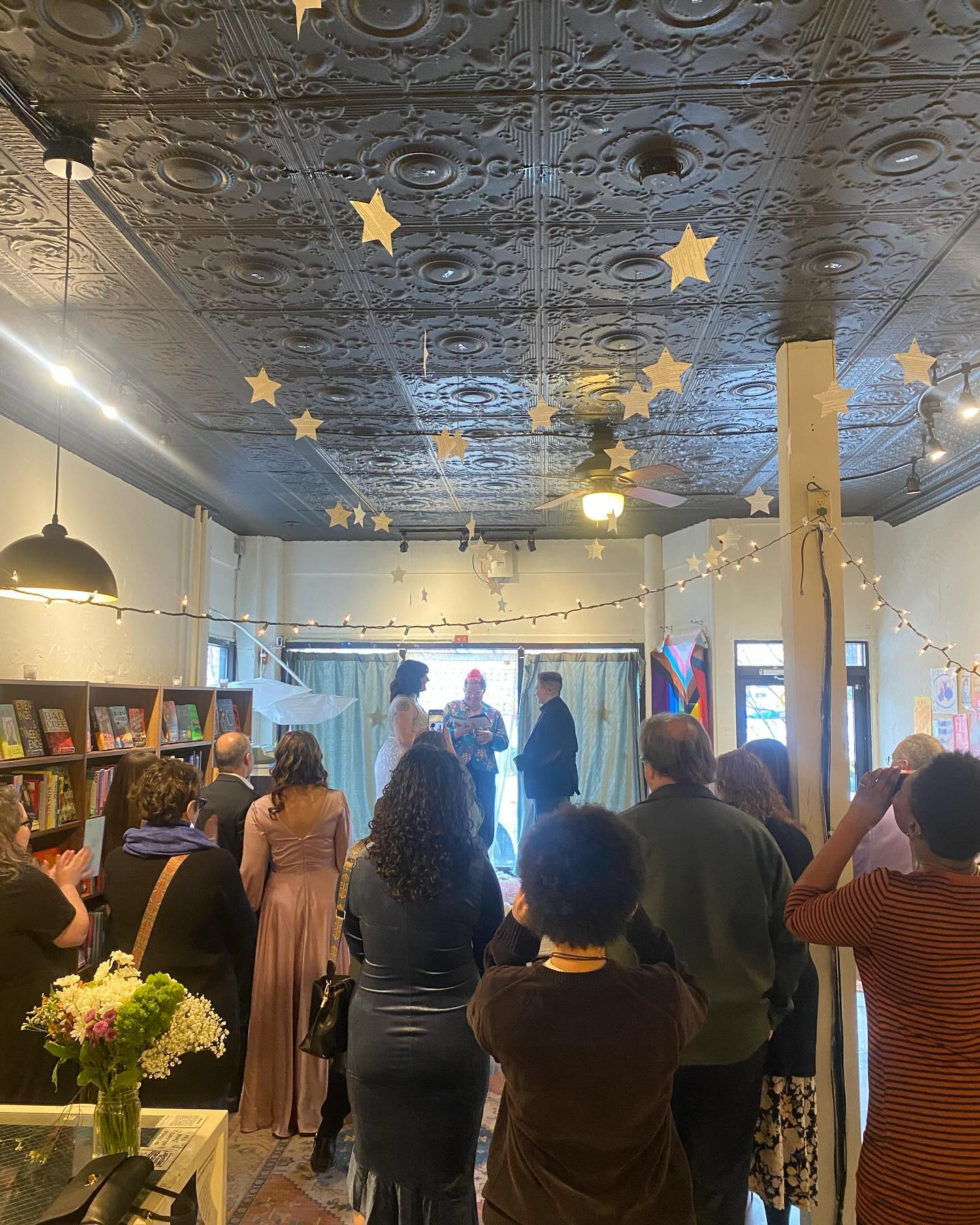 "
"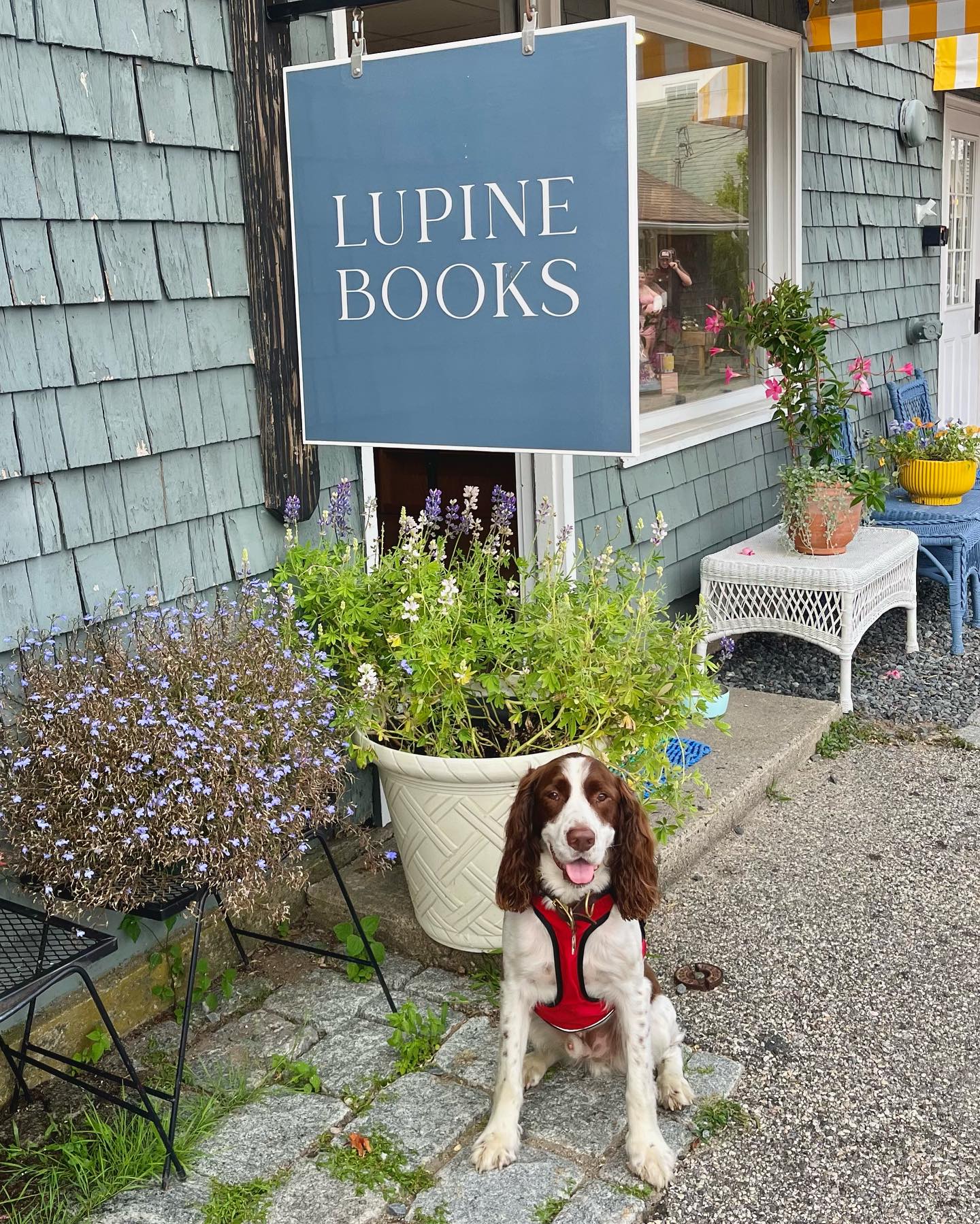 Posted on Instagram by
Posted on Instagram by 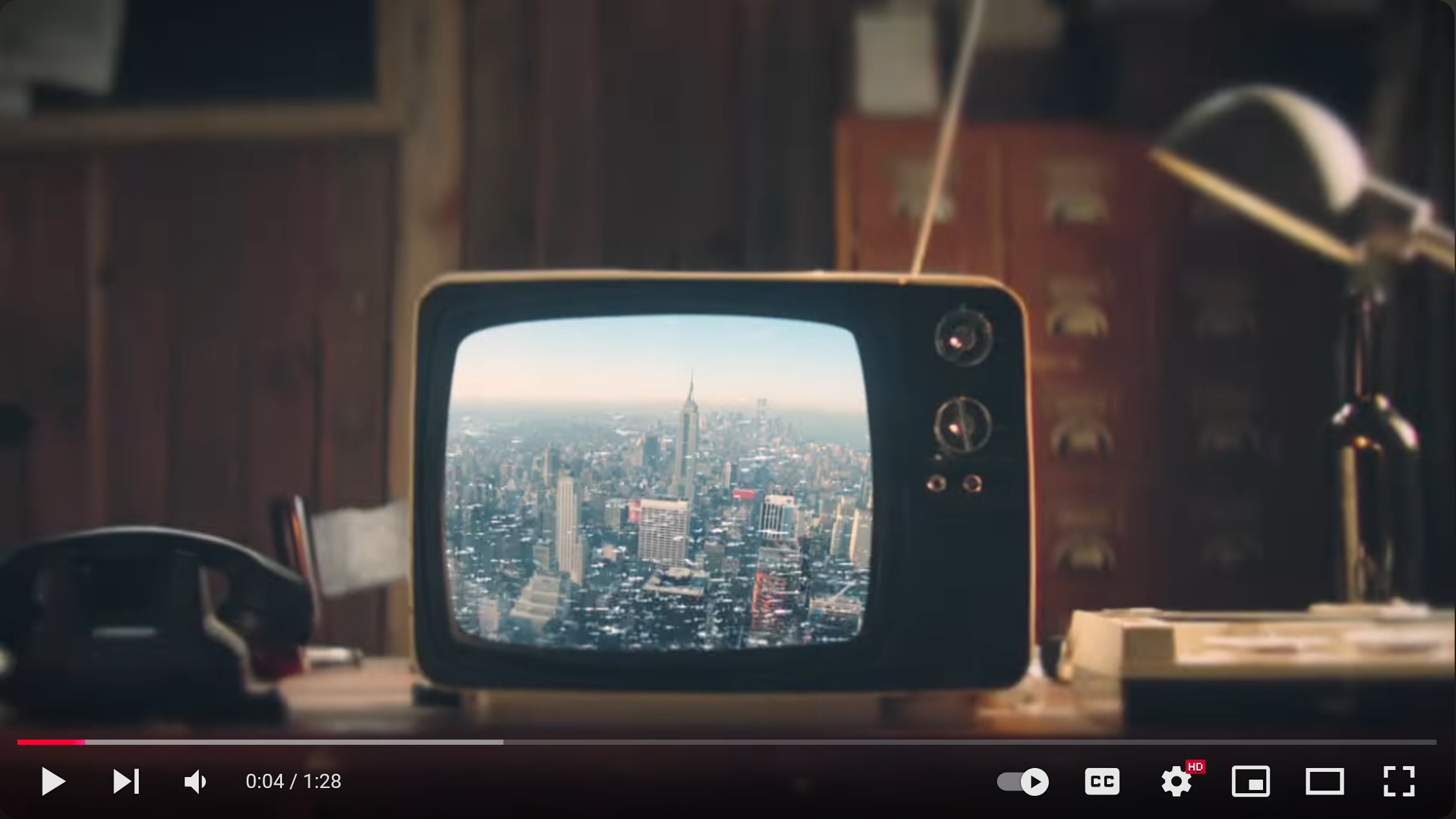 Blood and the Badge: The Mafia, Two Killer Cops, and a Scandal That Shocked the Nation
Blood and the Badge: The Mafia, Two Killer Cops, and a Scandal That Shocked the Nation Movies and television series adapted from books collected some shiny hardware at last night's
Movies and television series adapted from books collected some shiny hardware at last night's  Shelf Awareness: When you started your company in 1985, why did you choose to call it Kim-from-L.A.?
Shelf Awareness: When you started your company in 1985, why did you choose to call it Kim-from-L.A.?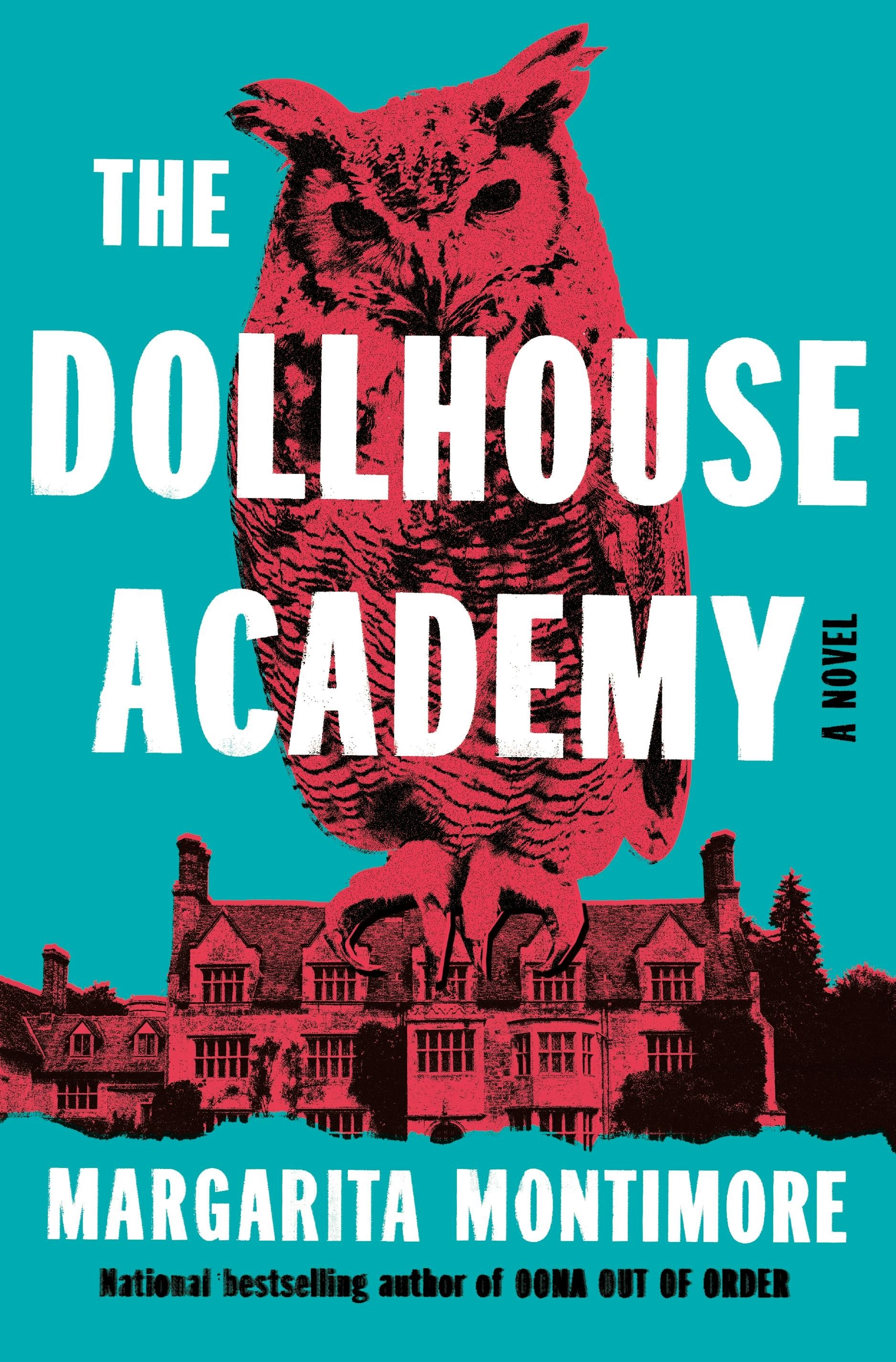 Exceptionally inventive author Margarita Montimore (
Exceptionally inventive author Margarita Montimore (